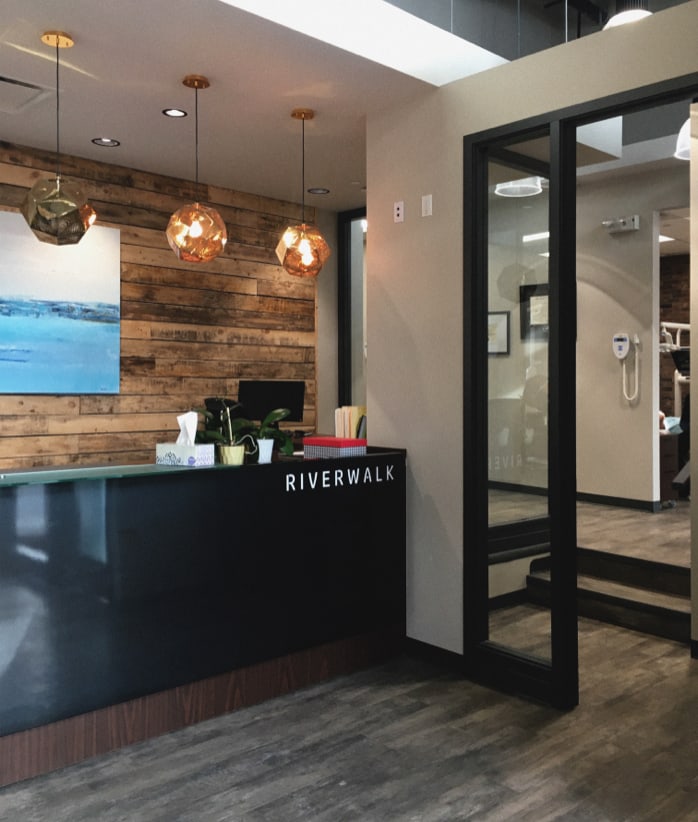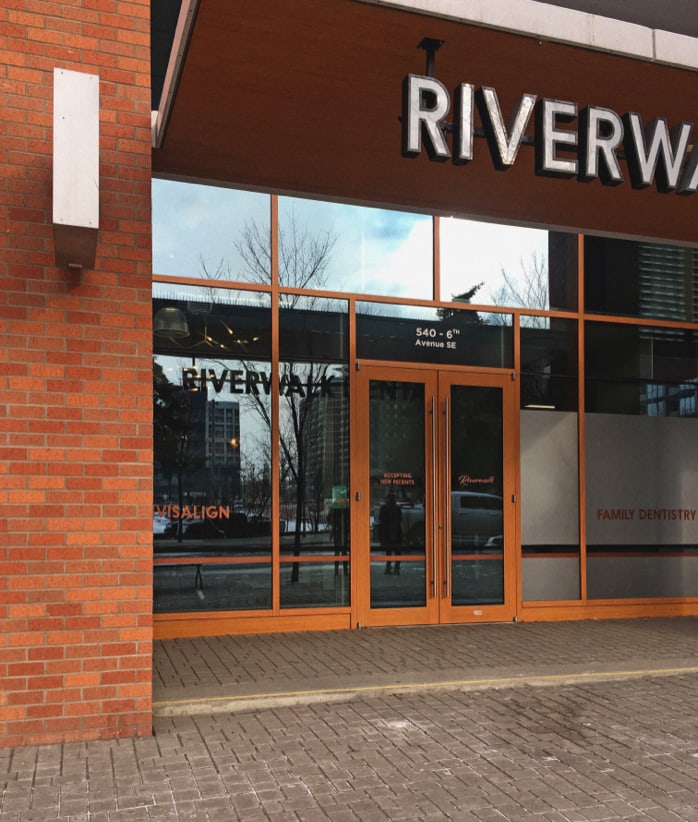Dentures Made with Care & Precision
Missing teeth can make everyday tasks like eating and speaking more difficult. At Riverwalk Dental, we offer custom dentures designed to fit your mouth comfortably and blend naturally with your smile.
Whether you need a full set of dentures or a partial solution, our team will work closely with you to create a treatment plan tailored to your needs and lifestyle.
Our goal is to help you regain ease in daily life with dentures that feel secure and allow you to enjoy your favourite foods again! Take the next step toward improving your oral health and quality of life. Book your denture consultation with our team today.
Book AppointmentAdjusting to Your New Dentures
Getting used to dentures is a process, and our team is here to support you every step of the way. When you first start wearing dentures, it’s normal to experience changes in speech and chewing. You might find that eating certain foods takes a little practice, and your mouth may need time to adapt to the new fit.
We recommend starting with softer foods and gradually introducing firmer textures as you become more comfortable. Regular follow-up visits are important so we can make any needed adjustments.

Types of Dentures We Offer
Dentures come in different styles to suit your unique dental needs and lifestyle. Whether you need to replace all your teeth or just a few, we will help find a solution designed to restore your ability to eat, speak, and smile comfortably.
Understanding the different types of dentures can help you and your dentist choose the best fit for your mouth and daily routine.
Also called full dentures, these are used when all your natural teeth are missing. Complete dentures are removable and held in place using suction. There are 2 types:
- Immediate dentures are made before your natural teeth are removed and provide a temporary solution during healing. Since your gums and bones change during this time, immediate dentures may require adjustments.
- Conventional dentures are created after your mouth has fully healed, providing a long-term fit and comfort.
If you have some natural teeth left or dental implants, overdentures fit over them for extra stability and support. This option helps maintain bone health and can improve chewing ability.
Partial dentures fill gaps when you still have healthy natural teeth. They consist of one or more artificial teeth attached to a framework that clips onto your remaining teeth. Unlike bridges, partial dentures are removable for easy cleaning and comfort.
Caring for Your Dentures
Proper care will keep your dentures looking their best and protect your oral health. Follow these tips:
- Clean daily: Brush your dentures twice a day using a soft brush and mild soap or denture cleaner. Avoid regular toothpaste or household cleaners, which can damage them.
- Rinse thoroughly: After brushing, rinse your dentures well with clean water before putting them back in your mouth.
- Protect when cleaning: Clean your dentures over a folded towel or a sink filled with water to prevent damage if dropped.
- Care for your gums: While your dentures are out, gently clean and massage your gums using a soft cloth or a finger wrapped in a damp cloth.
- Store properly: Remove dentures overnight and soak them in warm water or a denture cleanser solution. Avoid hot water and soaking solutions that may harm metal parts.
Regular Checkups Go a Long Way
Your mouth changes over time, so dentures may need adjustments to maintain comfort and fit. Visit us at least once a year to:
- Make sure your dentures fit properly and make any necessary repairs
- Check for denture sores or irritation
- Screen for oral health issues, including oral cancer
Regular exams help keep your mouth healthy and your dentures comfortable for the long term. Contact us to schedule your consultation for dentures today!
Book AppointmentServices That Cover
What You Need

Find Us in the Heart
of East Village
Come Visit Us
We are conveniently located in Calgary’s East Village. Swing by and visit the team today!
Where to park?
Street parking is available out front, and our team will happily cover the costs of your parking. Talk to our team for more information.
Our Address
- 540 6 Ave SE
- Calgary , AB T2G 1K5
Contact Information
- Phone: 403-456-4994
- Email: info@riverwalkdental.ca




